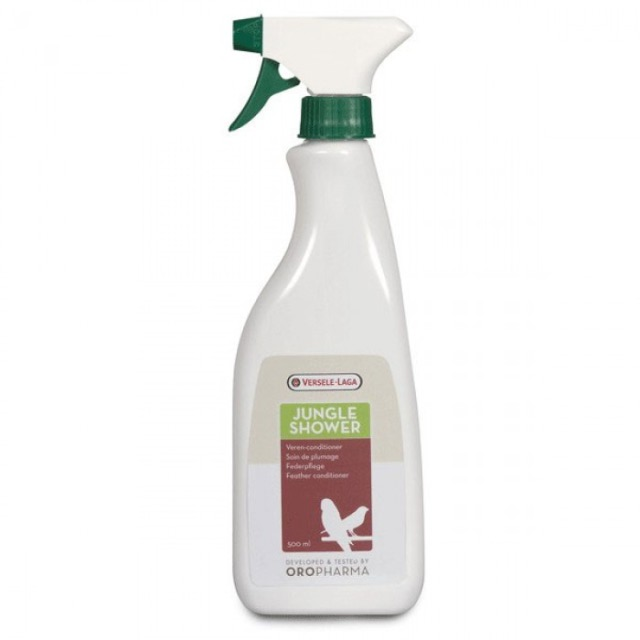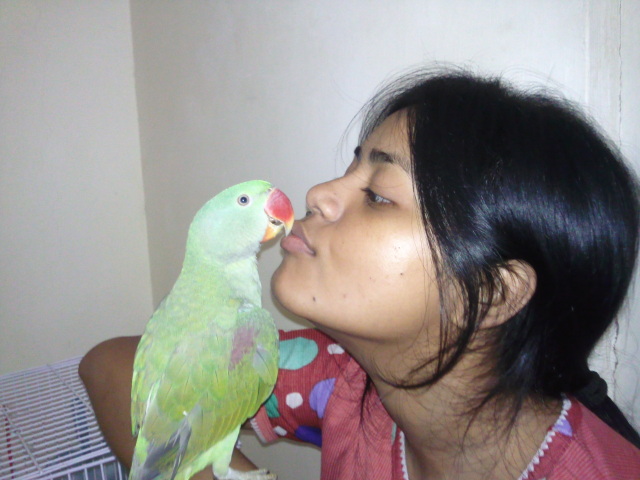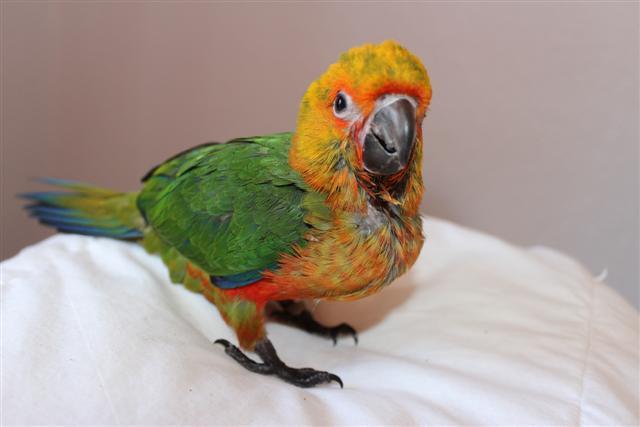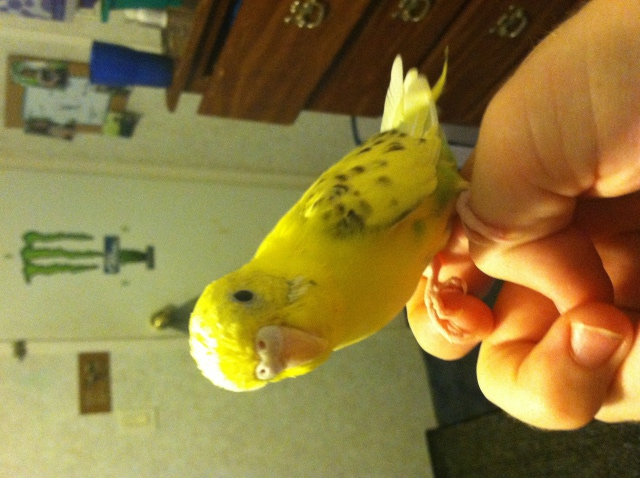QuestionQUESTION: My cockatiel has had a couple of seizures in the past couple of months.
This isn't everyday, but I am still worried, and am taking him to an avian vet.
I am wondering what the likely cause is, and he is almost a year old i think, I also think he may be moulting cos' he is losing quite a few feathers at the moment(not too sure whether he is moulting)
I want to make sure that seizures definitely means something is wrong.
What could be wrong with him and what tests will the avian vet probabaly do?
Also, he only has them when he out of his cage, usually afteer flying around the room.
ANSWER: Moulting wouldn't contribute to seizures, but whatever is causing the seizures might contribute to excessive feather loss.
Since he's so young, this is more of a concern. In most birds, the frequent cause of symptoms like this would be a condition called hypovitaminosis A --- usually the result of an all or mostly seed diet.
Your 'tiel may be suffering from this, although it's something we find typically builds up over time and becomes more symptomatic after a few years of age.
If your companion has convinced you to feed a predominantly seed diet over the years and most especially if getting sunflower seeds out of you, the chances are even greater that this is the problem.
Your vet (if not an avian vet) may not be aware that blood calcium levels are deceptive.
They will often fall within the normal range (8.0 - 13.0 mg/dl), so an ionized calcium level needs to be done.
Treatment will vary, but usually include calcium supplementation of some form and full spectrum lighting exposure (Vitamin D is necessary to properly use the calcium intake in both our birds and in us).
You can offer your bird some natural mozzarella cheese, a regular spoon of cottage cheese, yogurt or even a Tums (I'd limit it to 1/2 tab every other day) and try to use nothing but all natural products/foods.
Calcium supplementation is helpful, but only if this is the problem to begin with. That's why a hands on vet exam is necessary in each and every case.
In addition to a baseline complete blood count and chemistry, certain infectious diseases such as Chlamydia, polyoma and proventricular dilitation should be ruled out if possible
For more info on feeding and overall care, www.4AnimalCare.org
You're doing the right thing by having him seen. Good job!
---------- FOLLOW-UP ----------
QUESTION: "
Treatment will vary, but usually include calcium supplementation of some form and full spectrum lighting exposure (Vitamin D is necessary to properly use the calcium intake in both our birds and in us).
You can offer your bird some natural mozzarella cheese, a regular spoon of cottage cheese, yogurt or even a Tums (I'd limit it to 1/2 tab every other day) and try to use nothing but all natural products/foods."
When you say treatment will include full spectrum lighting exposure, will the vet expose my tiel to light while im there? for a few minutes, or what?
Also, wha exactly do you mean by natural mozerella cheese? I wasn't aware they could eat cheese.
How long does calcium deficiency usually last and what does it include? Will the tiel probabaly be kept overnight by the vet?
AnswerYou could expose your bird to full spectrum yourself. Either via sunlight through an unfiltered window or taking the cage to the yard. Be very careful that your bird doesn't overheat though - always, always have part of the cage covered so there's shade for it to go to. Never leave unattended outside. Not only are there threats from neighborhood wandering cats or even dogs, but if the bird overheats (holds wings down, open mouth breathing) they can succumb quickly.
A light mist of sprayed water can be enjoyable to a tiel having a new experience enjoying a sunny day.
There are simple light bulbs that you can install at the tiel's cage for daily full spectrum light. Exposure should be for 8 to 12 hours a day.
Go to www.4AnimalCare.org and click on the Drs Foster and Smith link for what I believe are very good prices and excellent customer service.
--- Yes, they can have cheese, BUT only natural, organic cheeses like mozerella where all (or nearly all) of the lactulose has been processed out. No salty cheeses, no cheese "products" or cheese "foods" - I stick to mozerella or cottage cheese. Mozerella = about the size of a thumbnail; cottage cheese = about 1 teaspoon.
Calcium deficiency can last forever, and make for a shorter life span. It can cause multiple other health problems, bone disease and even contribute to kidney and liver failure.
It's a good idea to avoid it rather than try to fix all the problems that result from it.
www.4AnimalCare.org

 Indian Ringneck Health Issue
QuestionI have an Indian Ringneck who had been neglecte
Indian Ringneck Health Issue
QuestionI have an Indian Ringneck who had been neglecte
 can i give my parrot chole(chana) called in hindi
Question
my little chaddi alexa
dear sir,
can give chan
can i give my parrot chole(chana) called in hindi
Question
my little chaddi alexa
dear sir,
can give chan
 Jenday Conure Weaning?
Question
Castor the Conure
Hi
I have a 9 week o
Jenday Conure Weaning?
Question
Castor the Conure
Hi
I have a 9 week o
 Parakeet gender
Question
Parakeet
Hi, I looked for an expert und
Parakeet gender
Question
Parakeet
Hi, I looked for an expert und
 ID Birds
Question
Panama Birds
My uncle served in Panama in 1941
ID Birds
Question
Panama Birds
My uncle served in Panama in 1941